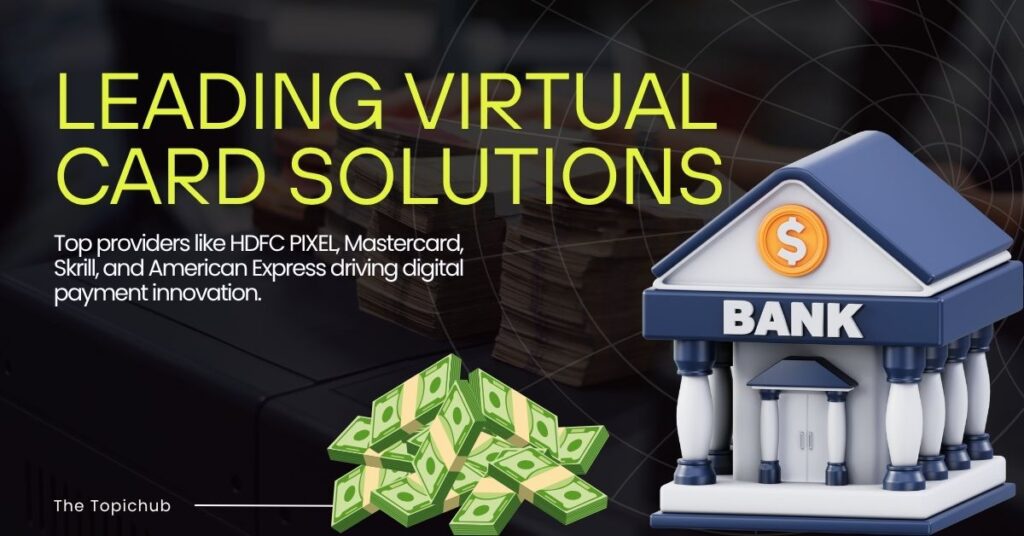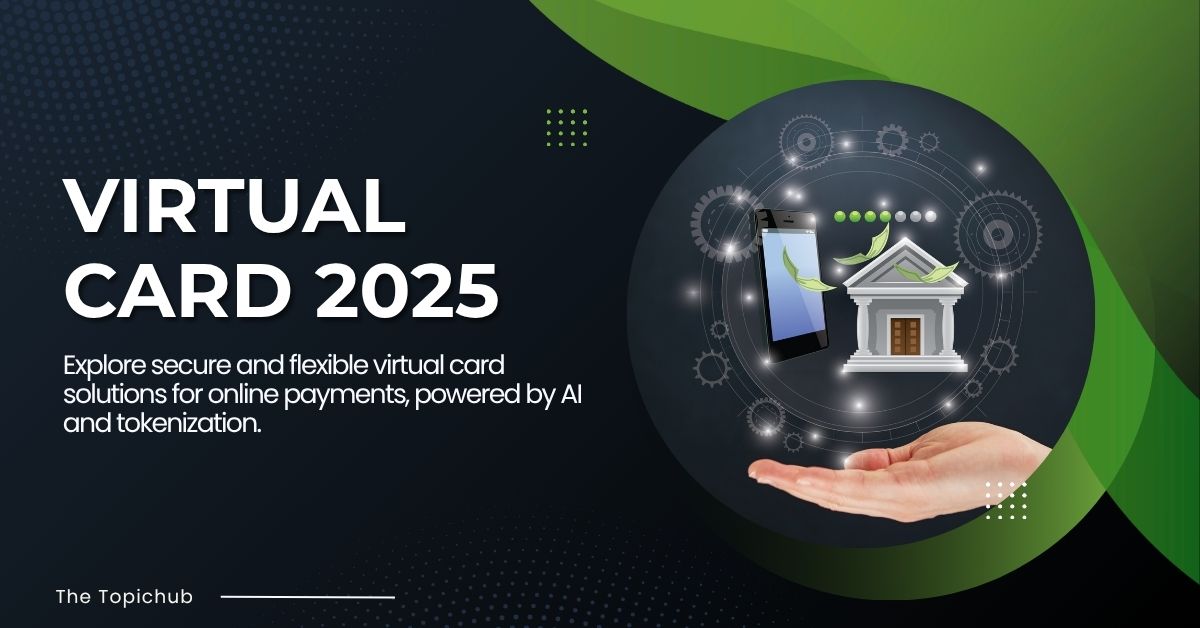Virtual Cards
In the world of digital payments, virtual cards have emerged as a game-changer. These digital payment cards are designed to provide an additional layer of security, convenience, and flexibility for online transactions. In this summary, we’ll explore the concept of virtual cards, their benefits, and their growing popularity.
What are Virtual Cards?
Virtual cards are digital payment cards that exist only in electronic form. They are typically linked to a physical card or account, but they don’t have a physical presence. Virtual cards can be used for online transactions, phone purchases, or mobile payments. They offer a secure and convenient way to make payments without exposing sensitive card information.
Benefits of Virtual Cards in 2025
- Enhanced Security: Virtual cards provide an additional layer of security for online transactions. They can be generated with specific spending limits, expiration dates, and usage restrictions, reducing the risk of unauthorized transactions.
- Convenience: Virtual cards eliminate the need to physically possess a card, making them ideal for online shopping, phone transactions, or mobile payments.
- Flexibility: Virtual cards can be easily generated, managed, and cancelled online or through mobile apps, providing users with greater control over their transactions.
- Reduced Risk of Card Skimming: Virtual cards are not susceptible to card skimming, as they don’t have a physical presence.
- Increased Control: Virtual cards can be used to set specific spending limits, track transactions, and monitor account activity.
Types of Virtual Cards in 2025
- Single-Use Virtual Cards: These cards are designed for one-time use and are typically used for online transactions.
- Multi-Use Virtual Cards: These cards can be used for multiple transactions and can be linked to a physical card or account.
- Disposable Virtual Cards: These cards are designed for temporary use and can be cancelled after a specific period.
Use Cases for Virtual Cards in 2025
- E-commerce: Virtual cards are ideal for online shopping, providing an additional layer of security and convenience.
- Subscription Services: Virtual cards can be used to manage subscription services, such as streaming platforms or software subscriptions.
- Business Expenses: Virtual cards can be used to manage business expenses, providing greater control and visibility over company spending.
- Travel: Virtual cards can be used for travel-related expenses, such as booking flights or hotels.
Challenges and Limitations
- Merchant Acceptance: Not all merchants accept virtual cards, which can limit their use.
- Technical Issues: Technical issues, such as connectivity problems or app glitches, can affect the usability of virtual cards.
- Security Concerns: While virtual cards offer enhanced security, they are not foolproof, and users must still take precautions to protect their account information.
The Future of Virtual Cards
The popularity of virtual cards is expected to continue growing, driven by the increasing demand for secure and convenient online payment solutions. As technology advances, virtual cards are likely to become even more sophisticated, offering features such as:
- Artificial Intelligence (AI): Virtual cards may be integrated with AI-powered systems to detect and prevent fraudulent transactions.
- Biometric Authentication: Virtual cards may incorporate biometric authentication methods, such as facial recognition or fingerprint scanning, to enhance security.
- Blockchain Technology: Virtual cards may be built on blockchain technology, providing an additional layer of security and transparency.

Flexible Payment Solution
Virtual cards offer a secure, convenient, and flexible payment solution for online transactions. With their growing popularity, it’s likely that virtual cards will become an essential tool for individuals and businesses alike. As technology continues to evolve, virtual cards will likely become even more sophisticated, offering enhanced security features and greater control over transactions. Whether you’re an individual looking to protect your online transactions or a business seeking to manage expenses, virtual cards are worth considering.
The latest developments in virtual cards are transforming the way individuals and businesses make transactions. Virtual cards have emerged as a game-changer in the digital payment landscape, offering enhanced security, convenience, and flexibility.
Recent Developments
- HDFC Bank’s PIXEL Virtual Credit Card: HDFC Bank launched PIXEL, a virtual credit card, in collaboration with Visa. This card is designed for tech-savvy consumers who prefer seamless and customizable financial solutions. PIXEL offers tailored benefits and offers aligned with users’ spending habits and are fully integrated into HDFC Bank’s PayZapp mobile application.
- Mastercard’s Virtual Card Solution: Mastercard partnered with Aquapay to introduce a virtual card solution for business travel payments. This innovative solution allows travel management companies to issue virtual cards for central travel accounts, streamlining payment processes and improving security.
- Skrill’s Virtual Prepaid Card: Skrill launched a new virtual prepaid card, replacing the real CFSB-issued Skrill Visa Card. This card has a shortened application procedure and can be enabled in seconds, providing users with a digital payment option.
- Extend and American Express Partnership: Extend, a fintech leader in virtual cards, partnered with American Express to develop virtual card services for US businesses. This partnership enables companies to produce virtual cards using Extend’s app or desktop login.
Key Trends and Features
- Tokenization: Virtual cards utilize tokenization technology to enhance security and protect user data.
- AI-driven Fraud Detection: Advanced AI-powered systems detect and prevent fraudulent transactions, ensuring secure payment processing.
- Biometric Authentication: Virtual cards incorporate biometric authentication methods, such as facial recognition and fingerprint scanning, to enhance security.
- Integration with Mobile Wallets: Virtual cards seamlessly integrate with mobile wallets, such as Apple Pay and Google Pay, offering users convenient payment options.
- Real-time Expense Tracking: Virtual cards enable real-time expense tracking, helping businesses manage employee expenses and reduce manual reconciliation tasks.
Benefits and Advantages
- Enhanced Security: Virtual cards offer enhanced security features, such as tokenization and biometric authentication, to protect user data and prevent fraudulent transactions.
- Convenience: Virtual cards provide users with a convenient and flexible payment solution, eliminating the need for physical cards.
- Cost Savings: Virtual cards can reduce processing costs for businesses compared to traditional payment methods.
- Improved Cash Flow Management: Virtual cards enable businesses to manage cash flow more effectively, reducing manual errors and delays.
Future Outlook
The virtual cards market is expected to continue growing, driven by increasing demand for digital payment solutions and enhanced security features. As technology advances, virtual cards will likely become even more sophisticated, offering features such as AI-driven analytics and blockchain integration. With their numerous benefits and advantages, virtual cards are poised to become a leading payment solution for individuals and businesses alike.
Market Growth
The global virtual cards market size was estimated at USD 19,016.7 million in 2024 and is projected to reach USD 60,064.6 million by 2030, growing at a CAGR of 21.2% from 2025 to 2030. The market is expected to witness significant growth, driven by increasing adoption of digital payment solutions and enhanced security features.
The Topic Hub: Your Trusted Source for Timely Insights
In today’s fast-paced world, staying informed about the latest developments across various subjects is crucial. The Topic Hub is a reliable information platform that offers well-curated, timely insights on a wide range of topics, including:
- Tech News: Stay up-to-date on the latest tech innovations, expert opinions, and detailed product analyses.
- Government Updates: Gain clarity on new policies and regulatory changes affecting various industries.
- Business News: Track market movements, financial trends, and strategic insights to support smarter decisions.
- Education News: Discover policy shifts, expert viewpoints, and developments influencing modern education.
- Emerging Technology: Explore pioneering technologies and breakthroughs shaping the future of industries.
GET GOVERNMENT UPDATES @ THE TOPIC HUB – https://thetopichub.com/
ALSO READ: Call Tracking Marketing in 2025: Benefits, Features & Best Practices
LATEST BLOG: Automotive Market in 2025: Trends, Challenges, Opportunities & Future Outlook
